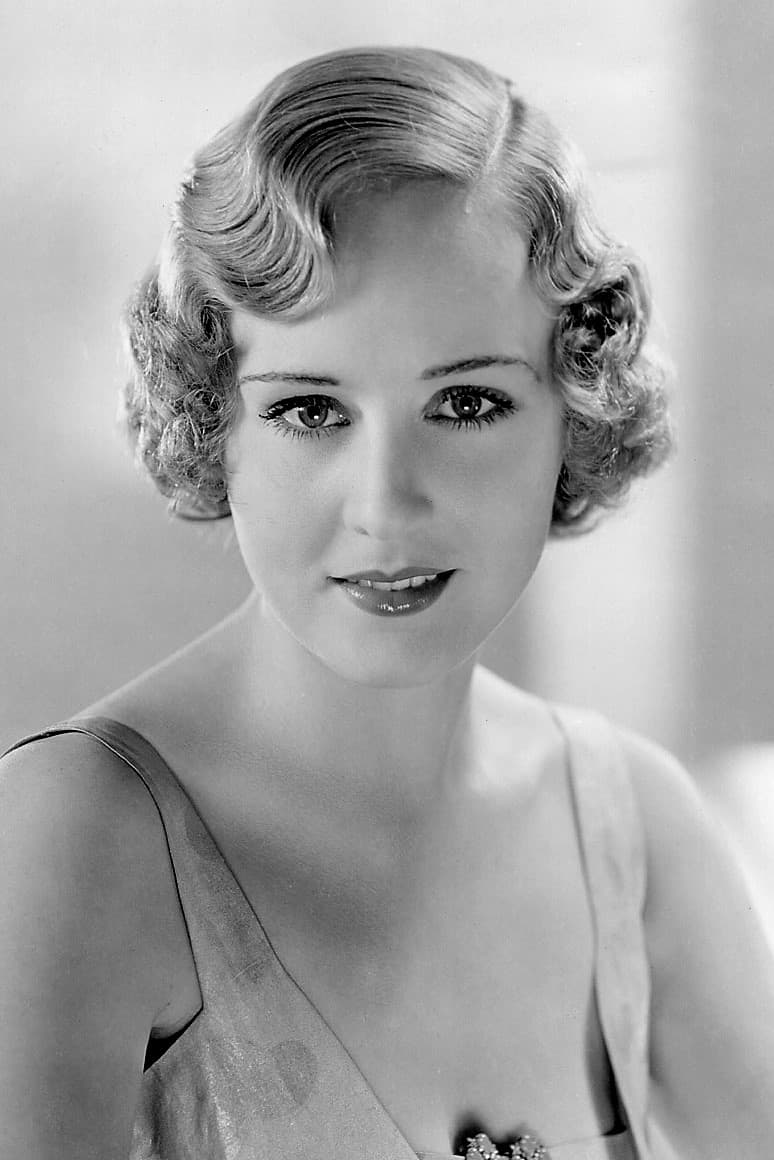
Madge Evans
Born: Jul 1, 1909
Back
Lovely Madge Evans was the perennial nice girl in films of the 1930s. By then, she had been in front of the camera for many years, starting with Fairy Soap commercials at the age of two (she sat on a bar of soap holding a bunch of violets with the tag line reading "have you a little fairy in your home?"). 'Baby Madge' also lent her name to a children's hat company. In 1914, aged five, she was picked out by talent scouts to appear in the William Farnum movie The Sign of the Cross (1914), followed by The Seven Sisters (1915) with Marguerite Clark. By the end of the following year, she had amassed some twenty film credits, appearing with such noted contemporary stars as Pauline Frederick or Alice Brady. All of her early films were made on the East Coast, at studios in Ft.Lee, New Jersey. In 1917 (aged eight), Madge made her Broadway debut in 'Peter Ibbetson' with John Barrymore and Lionel Barrymore. She resumed her stage career in 1926 as an ingenue with 'Daisy Mayme' and the following year appeared with Billie Burke in Noel Coward's costume drama 'The Marquise' (1927). Her pleasing looks and personality soon attracted the attention of Hollywood and she was eventually signed by MGM in 1931. During the next decade, she appeared in several A-grade productions, notably as Lionel Barrymore's daughter in MGM's Dinner at Eight (1933) and as the dependable Agnes Wickfield in one of the best-ever filmed versions of David Copperfield (1935). She co-starred opposite James Cagney in the gangster movie The Mayor of Hell (1933), Spencer Tracy in The Show-Off (1934) and listened to Bing Crosby crooning the title song in Pennies from Heaven (1936). Madge received praise for her performance as the star of Beauty for Sale (1933) and The New York Times review of January 13 1934 described her acting in Fugitive Lovers (1934) (opposite Robert Montgomery ) as 'spontaneous and captivating'. Many of her 'typical American girl' roles did not allow her to express aspects of the greater acting range she undoubtedly possessed. Too often she was cast as the 'nice girl' - and those rarely make much of a dramatic impact. On the few occasions she was assigned the role of 'other woman' , such as the Helen Hayes-starrer What Every Woman Knows (1934), audiences found her character difficult to believe and disassociate from her all-round wholesome image. When her contract with MGM expired in 1937, Madge wound down her film career and, following her 1939 marriage, concentrated on being the wife of celebrated playwright Sidney Kingsley. She last appeared on stage in one of his plays, "The Patriots", in 1943.
Movie that she play too
The Volunteer
0% Match1917
The Bard of Broadway
0% Match1930
The Tunnel
53% Match1935
The Greeks Had a Word for Them
52% Match1932
David Copperfield
66% Match1935
Dinner at Eight
67% Match1933
True Blue
0% Match1918
Helldorado
0% Match1935
Heartbreak
0% Match1931
Broadway to Hollywood
46% Match1933
The Mayor of Hell
71% Match1933
Love Net
0% Match1918
Death on the Diamond
70% Match1934
The New South
0% Match1916
Hallelujah, I'm a Bum
74% Match1933
The Nuisance
50% Match1933
Piccadilly Jim
65% Match1936
Guilty Hands
58% Match1931
Sinners in Paradise
50% Match1938
Are You Listening?
50% Match1932
Exclusive Story
65% Match1936
Son of India
50% Match1931
Day of Reckoning
44% Match1933
The Thirteenth Chair
61% Match1937
West of Broadway
63% Match1931
Wanted, A Mother
0% Match1918
Lovers Courageous
56% Match1932
Made on Broadway
65% Match1933
Beauty for Sale
70% Match1933
Pennies from Heaven
69% Match1936
Army Girl
60% Match1938
Huddle
66% Match1932
Moonlight Murder
42% Match1936
Espionage
68% Match1937
Fugitive Lovers
60% Match1934
Hell Below
58% Match1933
Age of Indiscretion
45% Match1935
What Every Woman Knows
70% Match1934
On the Banks of the Wabash
0% Match1923
The Show-Off
57% Match1934
Sporting Blood
51% Match1931
Fast Life
83% Match1932
Calm Yourself
45% Match1935
Stolen Orders
0% Match1918
The Power and the Glory
0% Match1918
Paris Interlude
30% Match1934
The Web of Desire
0% Match1917
Men Without Names
60% Match1935
The Hidden Scar
0% Match1916
The Revolt
0% Match1916
Husband and Wife
10% Match1916
Classmates
0% Match1924
The Devil's Toy
0% Match1916
Grand Canary
41% Match1934
Brother, Can You Spare a Dime?
61% Match1975
Stand Up and Cheer!
49% Match1934
Envy
0% Match1930
Seventeen
0% Match1916
The Seven Sisters
20% Match1915
Three Green Eyes
0% Match1919
The Golden Wall
0% Match1918
The Burglar
0% Match1917
The Corner Grocer
0% Match1917
Beloved Adventuress
10% Match1917
Sudden Riches
0% Match1916
Maternity
0% Match1917
The Master Hand
0% Match1915
Neighbors
0% Match1918
Home Wanted
0% Match1919